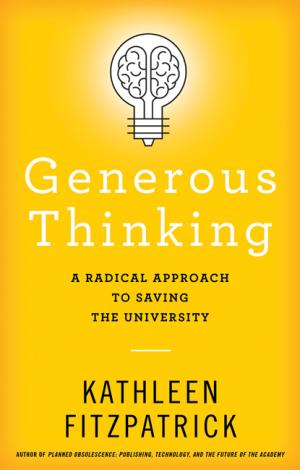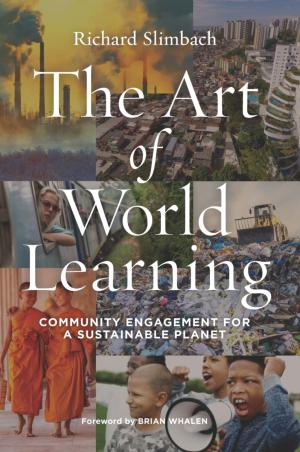Resources

Higher education occupies a difficult place in twenty-first-century American culture. Universities—the institutions that bear so much responsibility for the future health of our nation—are at odds with the very publics they are intended to serve. As Kathleen Fitzpatrick asserts, it is imperative that we re-center the mission of the university to rebuild that lost trust. In Generous Thinking, Fitzpatrick roots this crisis in the work of scholars. Critical thinking—the heart of what academics do—can today often negate, refuse, and reject new ideas. In an age characterized by rampant anti-intellectualism, Fitzpatrick charges the academy with thinking constructively rather than competitively, building new ideas rather than tearing old ones down. She urges us to rethink how we teach the humanities and to refocus our attention on the very human ends—the desire for community and connection—that the humanities can best serve. One key aspect of that transformation involves fostering an atmosphere of what Fitzpatrick dubs "generous thinking," a mode of engagement that emphasizes listening over speaking, community over individualism, and collaboration over competition. Fitzpatrick proposes ways that anyone who cares about the future of higher education can work to build better relationships between our colleges and universities and the public, thereby transforming the way our society functions. She encourages interested stakeholders to listen to and engage openly with one another's concerns by reading and exploring ideas together; by creating collective projects focused around common interests; and by ensuring that our institutions of higher education are structured to support and promote work toward the public good. Meditating on how and why we teach the humanities, Generous Thinking is an audacious book that privileges the ability to empathize and build rather than simply tear apart. (From the Publisher)

This is a visionary, consciousness-raising book that asks us to rethink the purposes and design of study away and study abroad experiences in the context of a broadened set of global threats, including climate disruption, soaring inequality, ecosystem breakdown, the dying off of distinct languages and cultural communities, and the threat of a nuclear catastrophe. As we ask students to truly comprehend this world from the privileged perspective of the global North, Rich Slimbach asks us to consider two fundamental questions: What and how should we learn? And having learned, for what should we use what we know? A panoply of pedagogies and methods of inquiry – from study away/abroad and service-based learning to diversity programming, environmental education, and community-based research – aim to develop students who both understand the challenges faced by global communities and act in ways that advance their social and environmental health. What temperaments, social habits, and intellectual abilities will they need to help heal their corner of creation? And what pedagogical perspectives, principles, and procedures can best support them in this creative challenge? Rich Slimbach argues that transforming student consciousness and life choices requires a global learning curriculum that integrates multi-disciplinary inquiry into the structural causes of problems that riddle the common good, along with mechanisms that bid students to cross borders, to pay attention, and to listen to those unlike themselves. At its heart, this book proposes a truly transformative approach to community-engaged global learning. (From the Publisher)